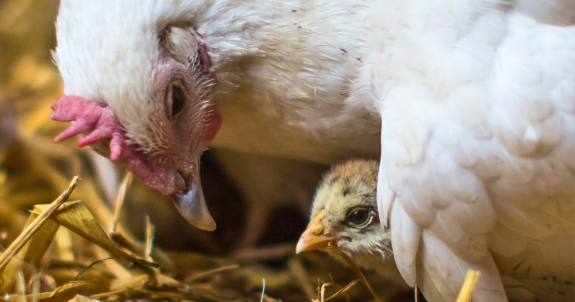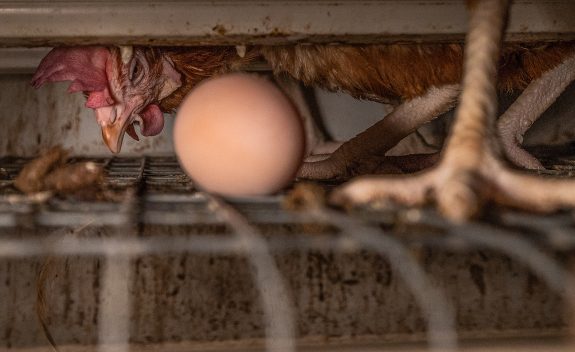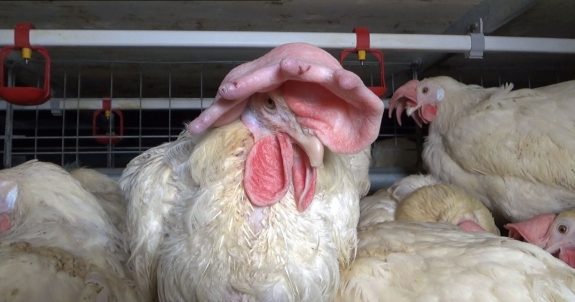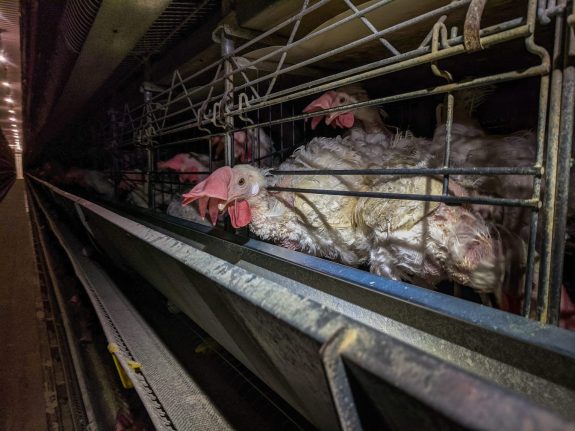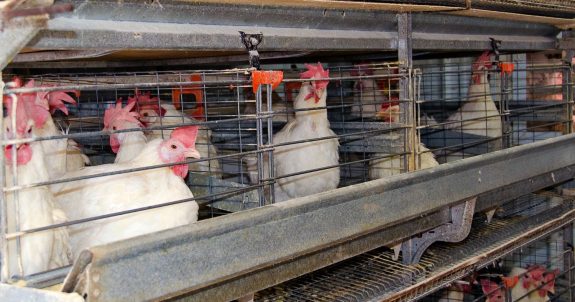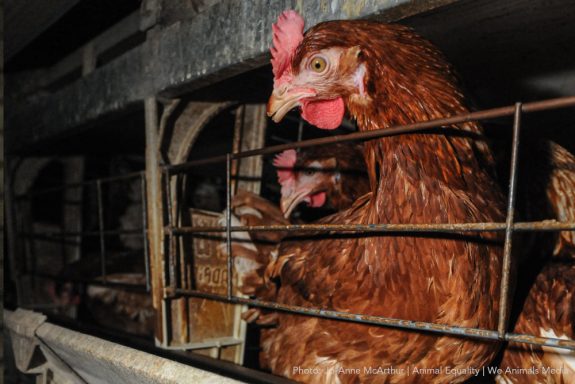Egg farms often cage laying hens in crowded and unnatural environments, where their lives are solely dedicated to producing eggs for human consumption. But hens are not simply egg-laying machines. They are sentient beings who can suffer, just like we do.
Chickens are smart, sensitive, and complex animals who deserve to experience freedom. Dr. Lori Marino, a neuroscientist and animal behaviour expert, concludes in a comprehensive review that “chickens are just as cognitively, emotionally, and socially complex as most other birds and mammals in many areas.” Chickens are truly incredible animals and should be treated with compassion and respect.
Motherly Instincts & Empathy
Hens are great moms. Mother hens chirp to their eggs before they hatch, and they show distress when their chicks are in trouble. Research shows that hens are more alert when their chicks are in distress. A mother hen’s heart begins to race, she preens less, and she clucks more if her chicks need help.
Skillful Communication
Chickens are sophisticated communicators. Researchers have identified around 30 distinct calls, along with a variety of visual displays. The Someone Project explains that chickens are also clever enough to deceive each other. For instance, roosters may call out as though they’ve found food to attract hens, seeking to distract them from other males. However, hens will stop responding to males who overuse this tactic.
Social Dynamics
Chickens have the ability to recognize up to 100 faces, including of animals and humans, and chicks imprint on their mother within just two to three days of hatching. They distinguish between members of their social group, keep track of who is where in the pecking order, and know who is and who isn’t part of their group.
Perception of Time & Memory
Chickens can perceive time intervals, remember and learn from past events, and anticipate what might happen in the future. For example, hens who have a choice between a little food after a short wait, or more food after a longer wait will choose the latter. In some studies focused on self-control, chickens may even outperform human children.
Engaging in Natural Behaviours
When they’re allowed to, chickens will spend up to 50% of their time foraging for food, pecking, and scratching at the ground. They preen, dust bathe (a relaxing social activity), and are naturally curious. Hens enjoy roaming, stretching their wings, and basking in the sun.
But on most egg farms, hens are trapped in cages and unable to enjoy what comes naturally to them, or live a life truly worth living.
Watch Penny’s Story
Animal Justice’s short film Penny’s Story tells an inspiring tale of a hen rescued from the horrors of a Canadian egg farm. Penny was able to experience freedom, companionship, and the beauty of a life lived as it should.

